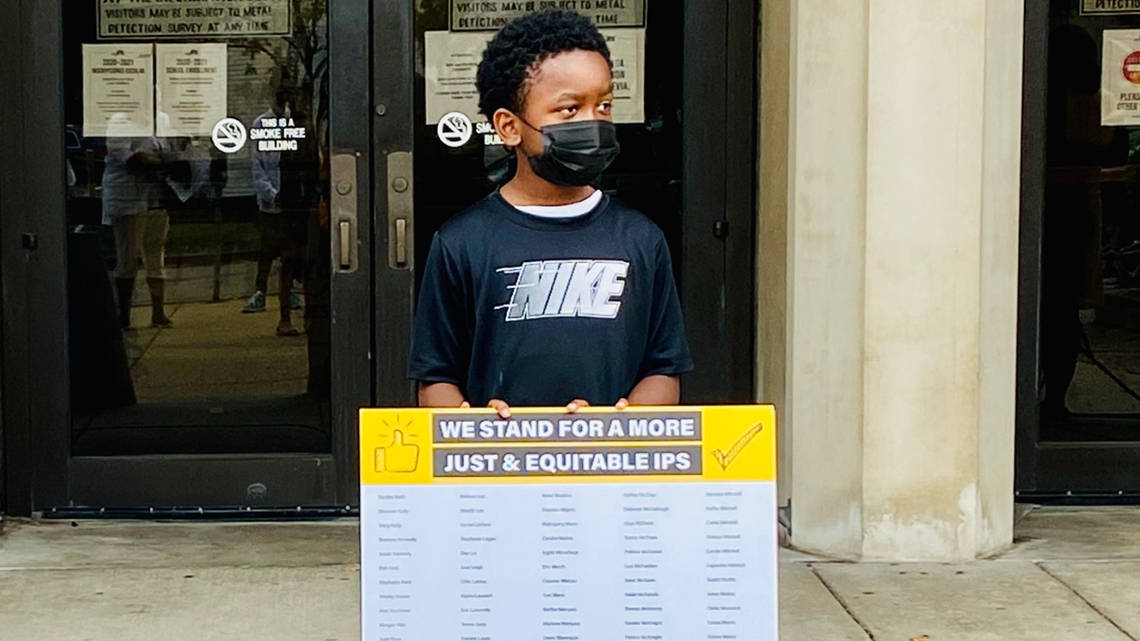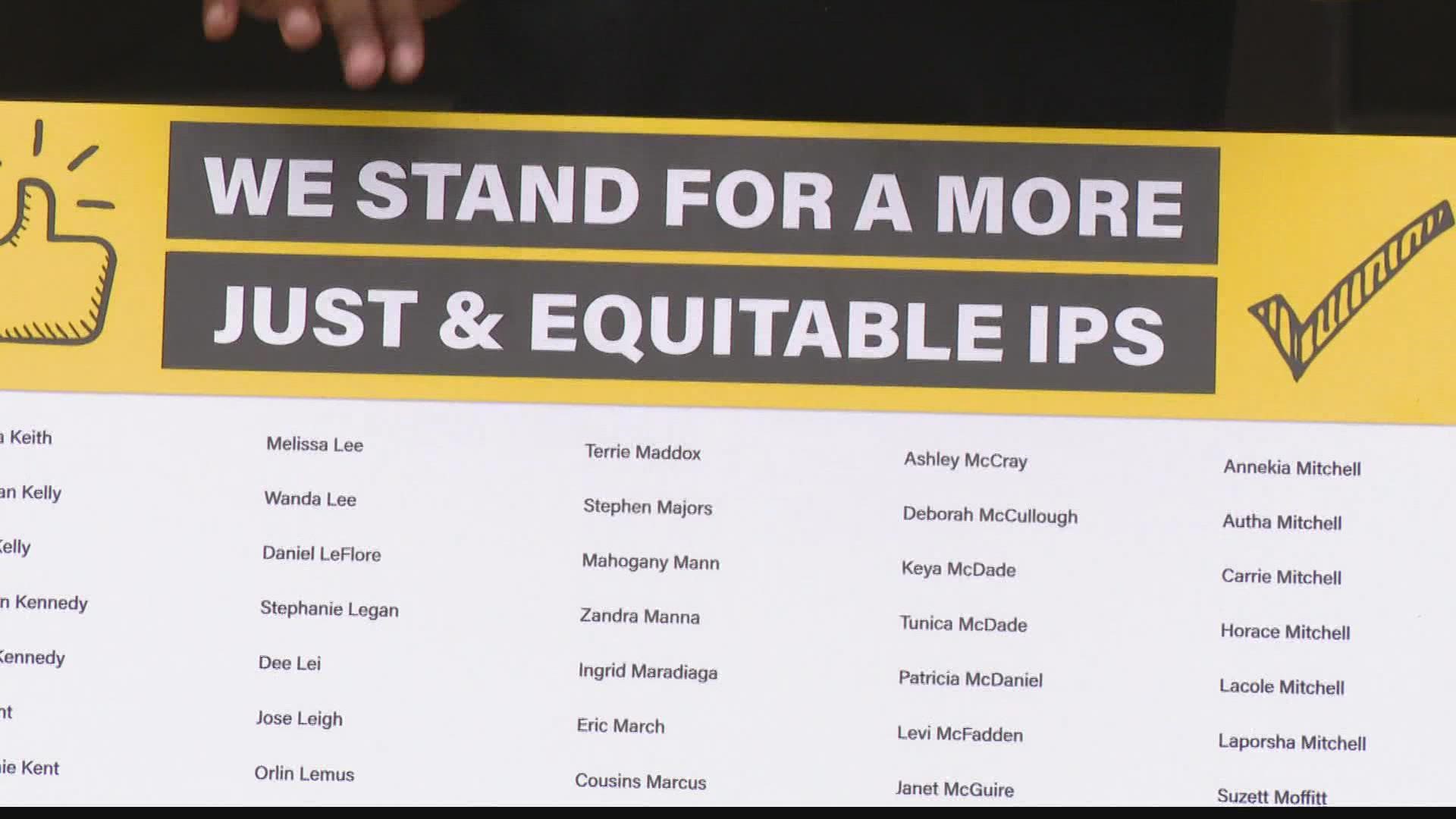Indianapolis Public Schools parents took a stand for a more “just and equitable” learning environment Thursday morning.
The group of parents affiliated with “Stand for Children Indiana” delivered a petition with more than 1,200 signatures to the Indianapolis Public Schools administration building.
“Together we have progressed to a more equitable future, but still, there is a lot more work to be done,” said LaToya Hale-Tahirou, an IPS parent.
The group is recommending that the district act to:
- Grow schools and models that are data proven to dramatically improve results for Black and Latino children
- Ensure all schools in the IPS family are funded equitably and referendum dollars are shared with schools of all types
- Dramatically increase the number of teachers of color
- Implement language justice practices in every school to support non-English speaking families
- End discipline disparities and thoroughly reviewing the role of police in schools to determine if they are contributing to the school-to-prison pipeline
“We are looking for systems and programs that are focused on building our children versus keeping them trapped in the cycle,” said Rachel Wright, an IPS parent.


Wright said she knows firsthand the impact a good education can have on a child.
According to 2019 data from the Indiana Department of Education, about 7% of black students and 11% of Latino students passed both the English and math sections of the state’s ILEARN exam. That’s compared to the 32% of white students.
“It’s very vital that we come alongside these youth and begin to diagnose the root problem of what’s causing them to be on the road to failure and then come alongside them and begin to support them and lead them and guide them to a future of success,” Wright said.
IPS Superintendent Dr. Alessia Johnson accepted the petition along with board members.
“Any time parents use their voice to advocate for their kids and all children is incredible,” said IPS School Board President Evan Hawkins.
The president of the board said addressing these inequities has been a big focus in the last year. About a year ago, the board approved its “racial equity mindset, commitment and action” policy, working to identify and correct practices that create an opportunity gap for students.
“Some of our next steps is to really understand what the needs are and push and roll our sleeves up to do what needs to be done in support of our kids,” Hawkins said.
You can read more about the group’s recommendations here.

